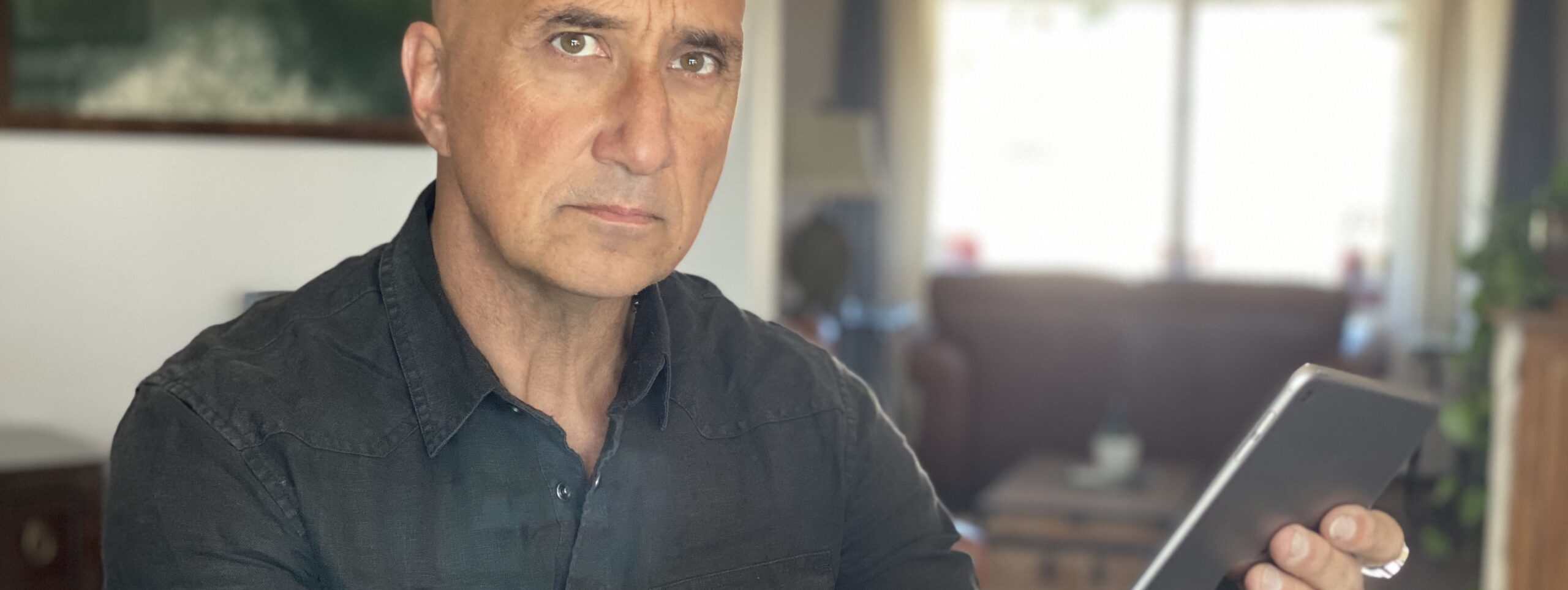The Lessons In Manliness are a series of short reflexions on how a middle-aged man can regain his manliness and sense of self. Those lessons are based on the 5 tenets of my program:
- Stay Strong
- Stay Sharp
- Stay Healthy
- Stay Safe
- Stay Manly
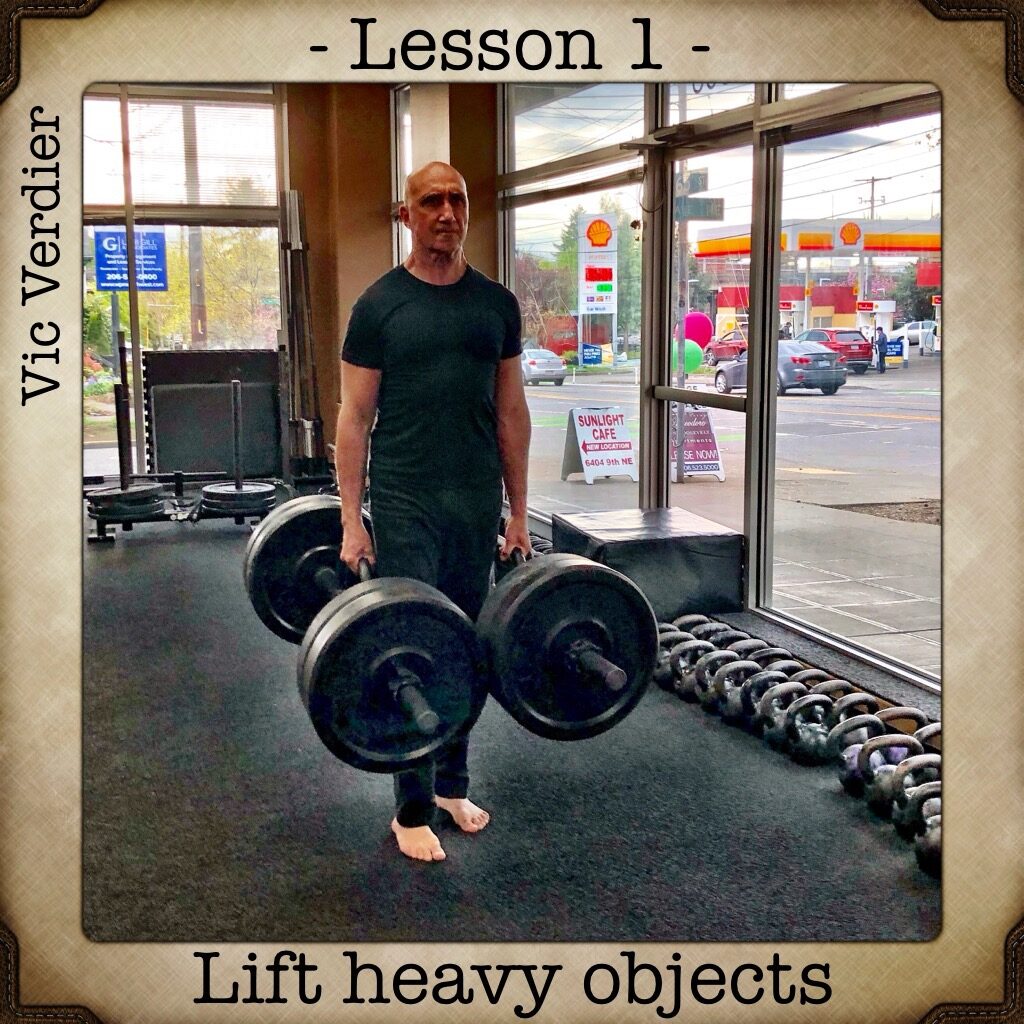
– Lesson 1: Lift Heavy Objects
Is it still useful to be strong? What is the relevance of strength and courage in a modern world where you don’t need to be strong and brave? Is my 400lbs Farmer carry pure Ego or does it carry over to real life? We don’t need to lift and carry so much weight anymore. We have tools that make this kind of task easy, tools that provide us with convenience, ease and safety. But strength is more than just moving a heavy piece of furniture or carrying dead wood. Strength is what we need in case of emergency, when we have to grab our two kids and run away from danger, when we want to help someone stuck under their fallen motorcycle, when we are the only one who can carry the hiker who sprained their ankle and your cell phone has no service. Strength makes us useful. Strength has a greater purpose.
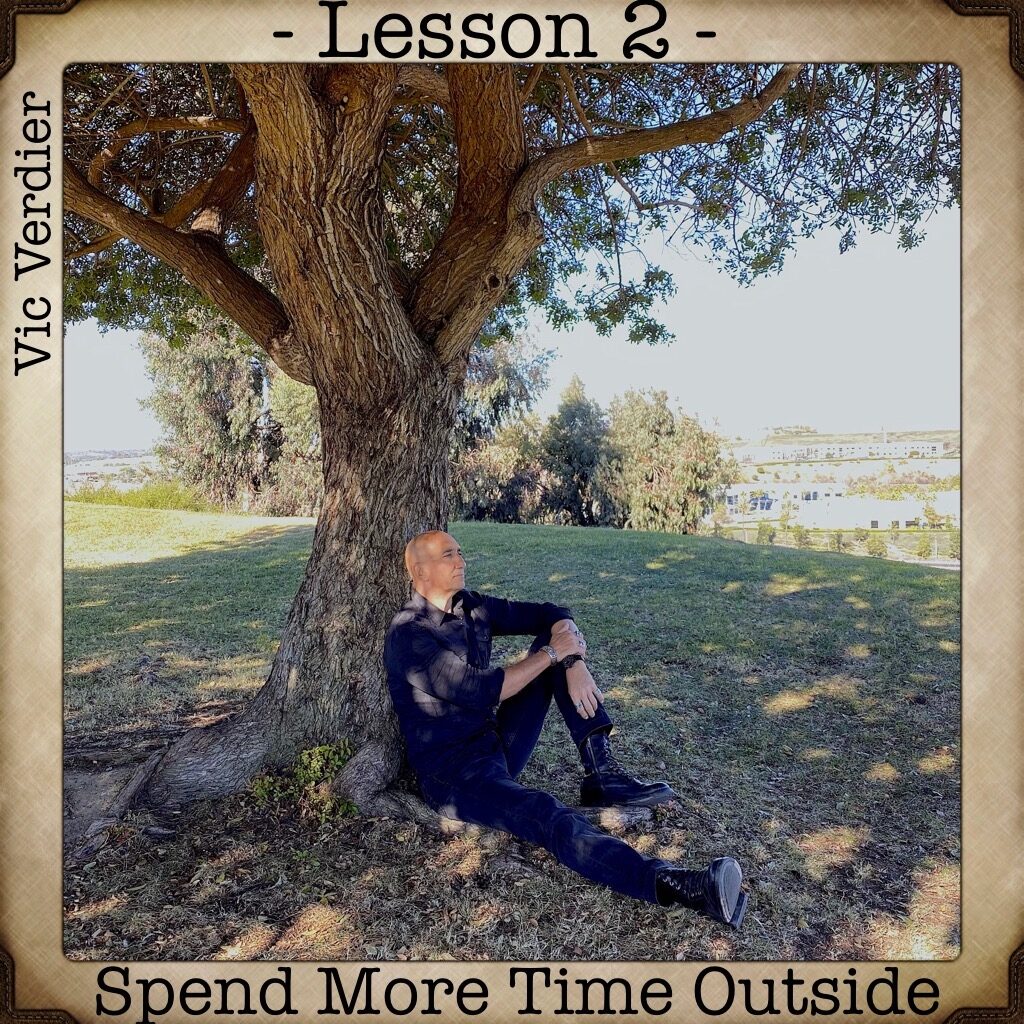
– Lesson 2: Spend Time in Nature
Too hot? Turn on the AC. Too cold? Let’s get closer to the heater. Rainy? Where is the umbrella and the raincoat. Too much sun? There are hundreds of sunscreen creams to copiously cover our skin with. The reality is that we slowly became disconnected with nature. We use all kinds of protection against our environment and what we perceive as a constant aggression against our well-being. The ground is dirty, hard and rough so we train on a yoga mat, wearing gloves and minimal shoes. We don’t want our clothes to be dirty, clothes that were originally designed to protect us. What an irony! We became addicted to the 3Cs: Cleanliness, Comfort and Convenience. What would it take to spend more time outdoors, in nature, without expecting a climate-controlled, cushioned, protected, risk-free, germ-free environment? A bit of courage and a small step outside of our comfort zone. It would build our resilience and our ability to better deal with life in general.
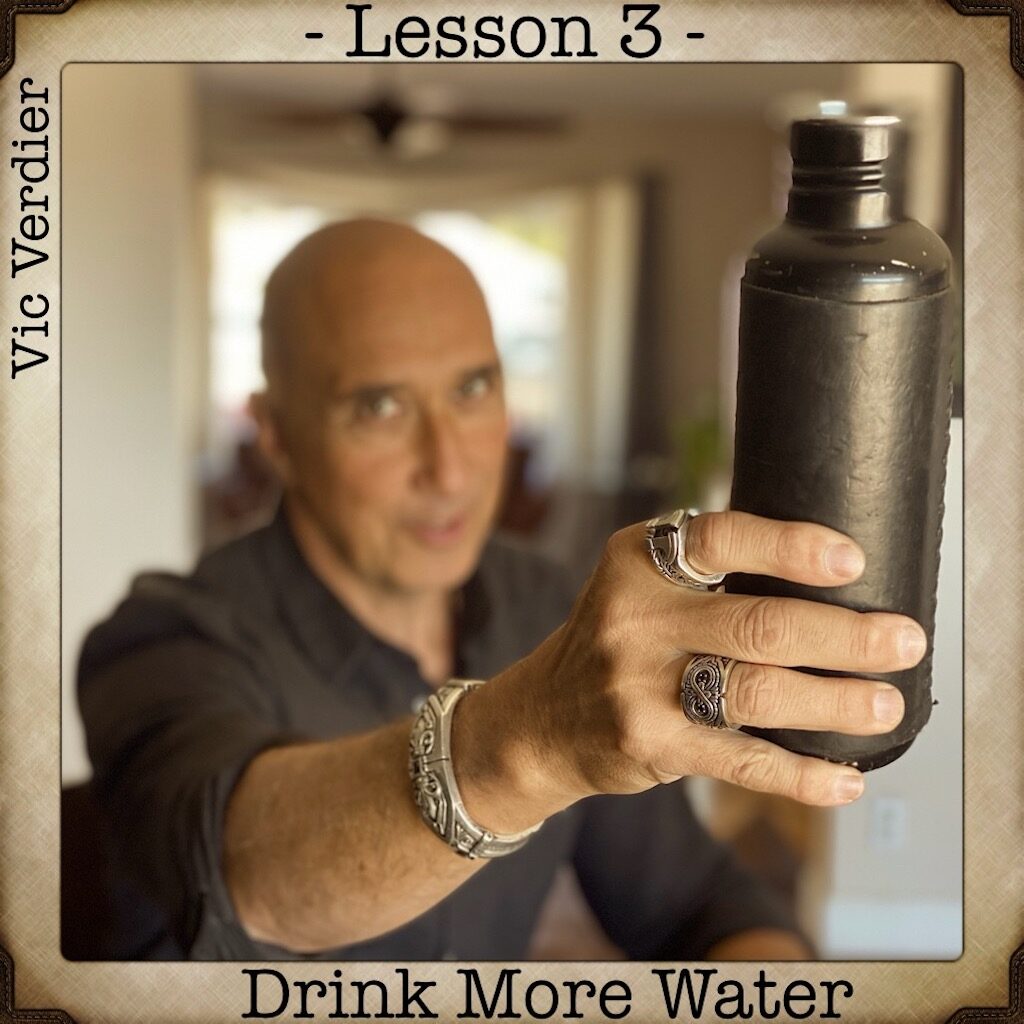
– Lesson 3: Drink More Water
Thailand has an extremely alarming number of obese children, something that didn’t exist 50 years ago. The diet hasn’t changed that much. Neither has their level of daily physical activity. The main change has been the overwhelming introduction of sweet drinks and soda. Kids in school have easy access to plastic bags filled with sugary drinks with tasty flavors. In a tropical country where drinking fluids is of paramount importance, a straw in a plastic bag full of “liquid candy” has completely changed the shape of the younger population. Is it really different in the Western world? Aren’t we seeing kids and adults alike gulping on gallon-sized cups of sweet sodas. The sugar-free alternatives don’t seem to change our body’s hormonal reaction to an ever increasing amount of sugar-tasting fluids.The solution? Drink more water. A lot more. Just plain water. Every day. No need to list all the benefits of drinking plenty of water instead of any other drink. You already know them. So just do it. It’s that simple!
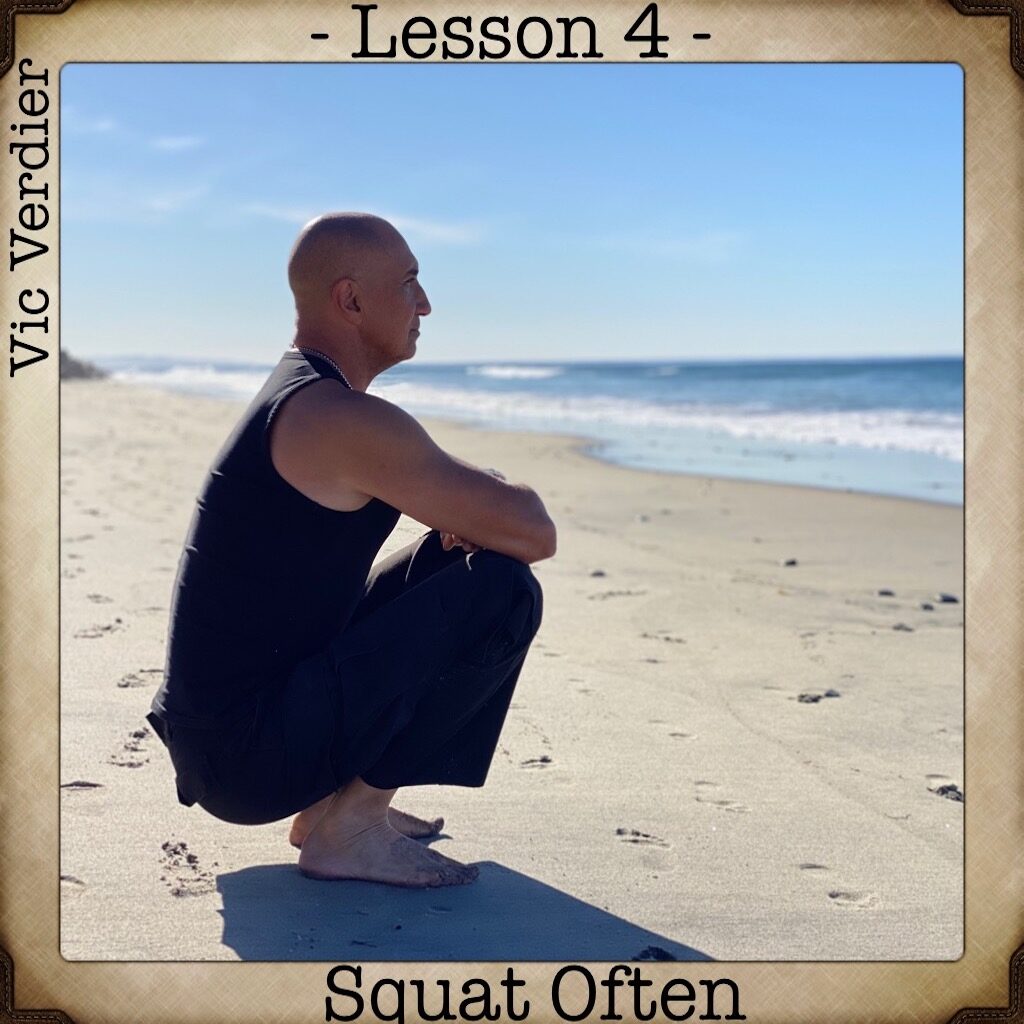
– Lesson 4: Squat Often
How many hours a day do you spend sitting? Do you sit in a chair, a bench, a stool or an armchair at home, at work, in your car, in public transportation and even in the gym? Then you are probably part of the majority of people who live a sedentary life in the Western world. Most of the 17.000 generations of Homo Sapiens that came before you spent most of their time standing, squatting, kneeling or laying down. People were sitting directly on the ground, as it’s still commonly practiced in many parts of the world. In the Western World, chairs were mostly a sign of wealth, power, and dominance. We slowly became more sedentary, and after the Industrial Revolution, sitting on a chair became one of our favorite activities. But sitting, even comfortably, came at a price. With daily prolonged practice, some adaptation occurs: some muscles stiffen and tighten while others atrophy, creating dysfunction and chronic pain. Is it possible to live in a modern world without sitting on a chair? No but we can choose alternative solutions. Working at a standing desk. Walking instead of driving. Eating at a low table – or no table at all – so we have to squat or sit on the floor. Is it less comfortable? Yes, at least at the beginning, for most of us, but we are talking about long-term changes. Adaptation works both ways.
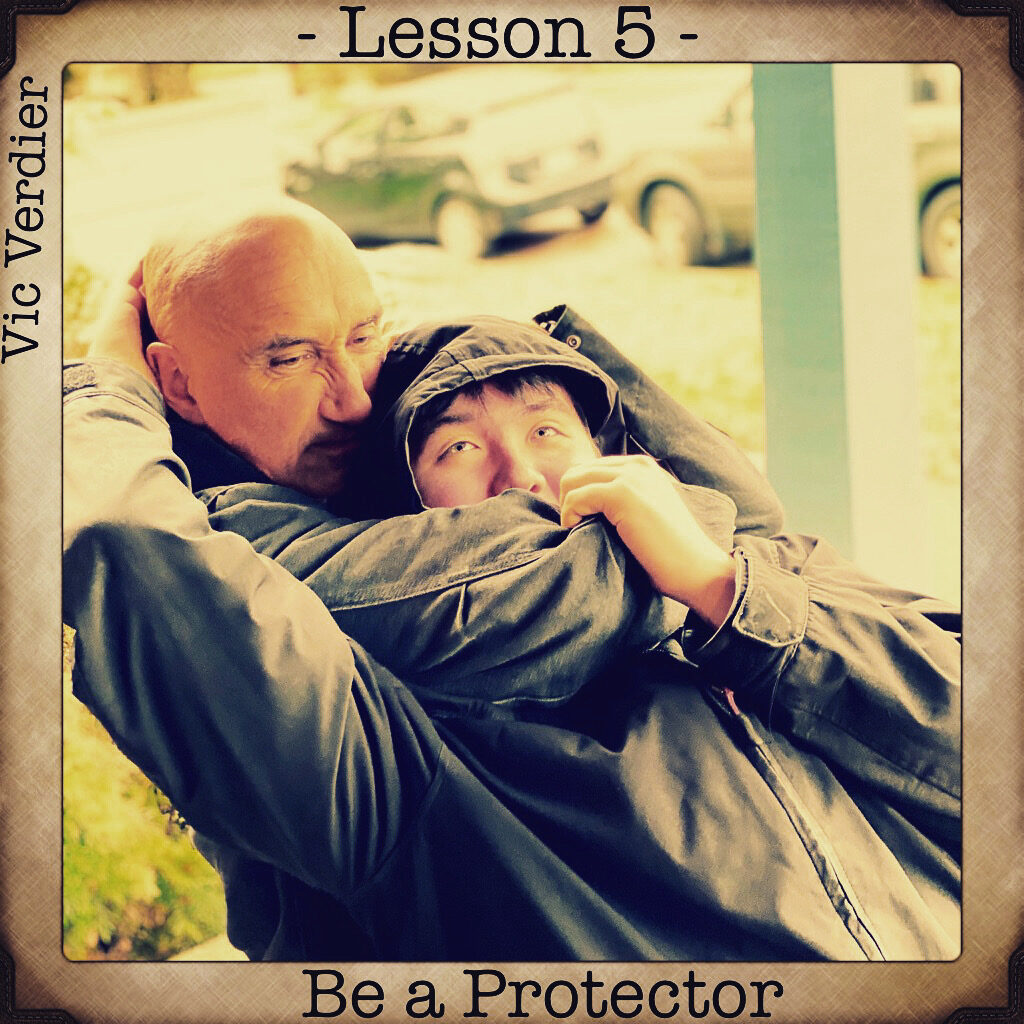
– Lesson 5: Be a Protector
Does it still make sense for a modern man to know how to fight? Even though we think we live in a civilized world, the answer is still yes. One of the responsibilities of a man has always been to protect his family and his community. It might be because of their usually greater strength and larger size, or their natural aggressiveness, or simply because men are way more expendable than women when it comes to the survival of the species.If you think that violence is rare in the Western world, think again. In the US alone, the FBI estimates that there is an aggravated assault happening every 30 seconds, ranging from armed robbery to sexual assault and domestic violence. Men and women alike should be able to defend themselves and their loved ones against anything evil that could come their way. We don’t like to think about it. We hope it will never happen to us and only to those “looking for trouble”, but the reality is that anyone should be ready for it, the same way that we are ready for any foreseeable problem. We learn to swim to avoid drowning. We have a fire extinguisher and a smoke detector in case of a kitchen fire. We need to step up and have the skills and the tools to manage a violent threat to self, to loved ones, to community.
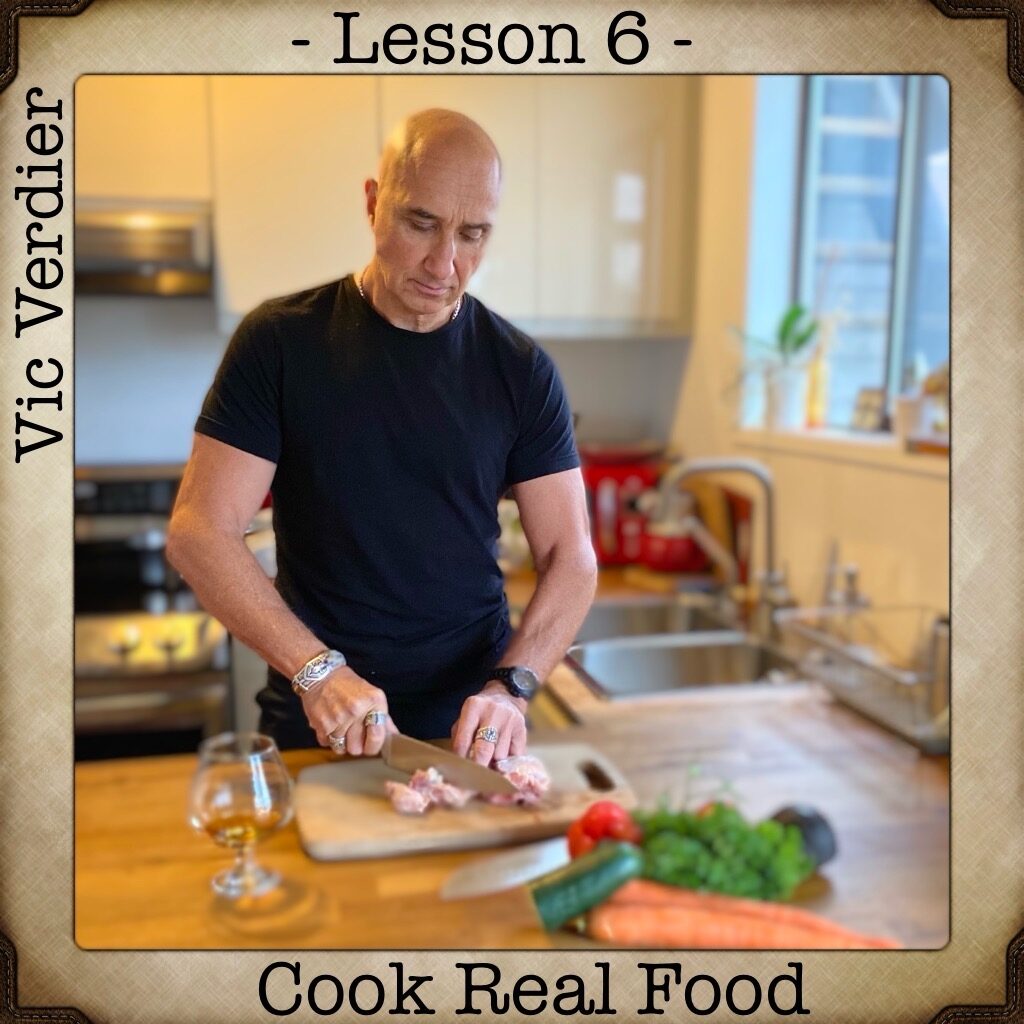
– Lesson 6: Cook Real Food
COOK. REAL. FOOD. 3 words that are extremely important and often ignored in a world obsessed with convenience, speed, weight loss and instant gratification. COOK: it’s not about putting a Meal-Ready-to-Eat in a microwave oven, or ordering a meal online and getting it delivered. it’s about taking the time to select the ingredients, to prepare them, to combine them randomly or according to a recipe, to cook them on the stove, patiently waiting to taste the final result. In other words, it’s a daily act of creation, not just about filling up an empty stomach. REAL: nothing artificial, made by a machine out of ingredients with strange names. Enough of what the food industry offers based on low cost, extended shelf life and extreme palatability. FOOD: nutritious food. Food that our body not only transforms into energy and building blocks, but also food that our brain and our senses will fully appreciate. Food that will not get us addicted by its extremely sweet or salty taste but food full of flavors, food that will not wreck havoc our metabolism. BE IN CHARGE OF WHAT YOU EAT.
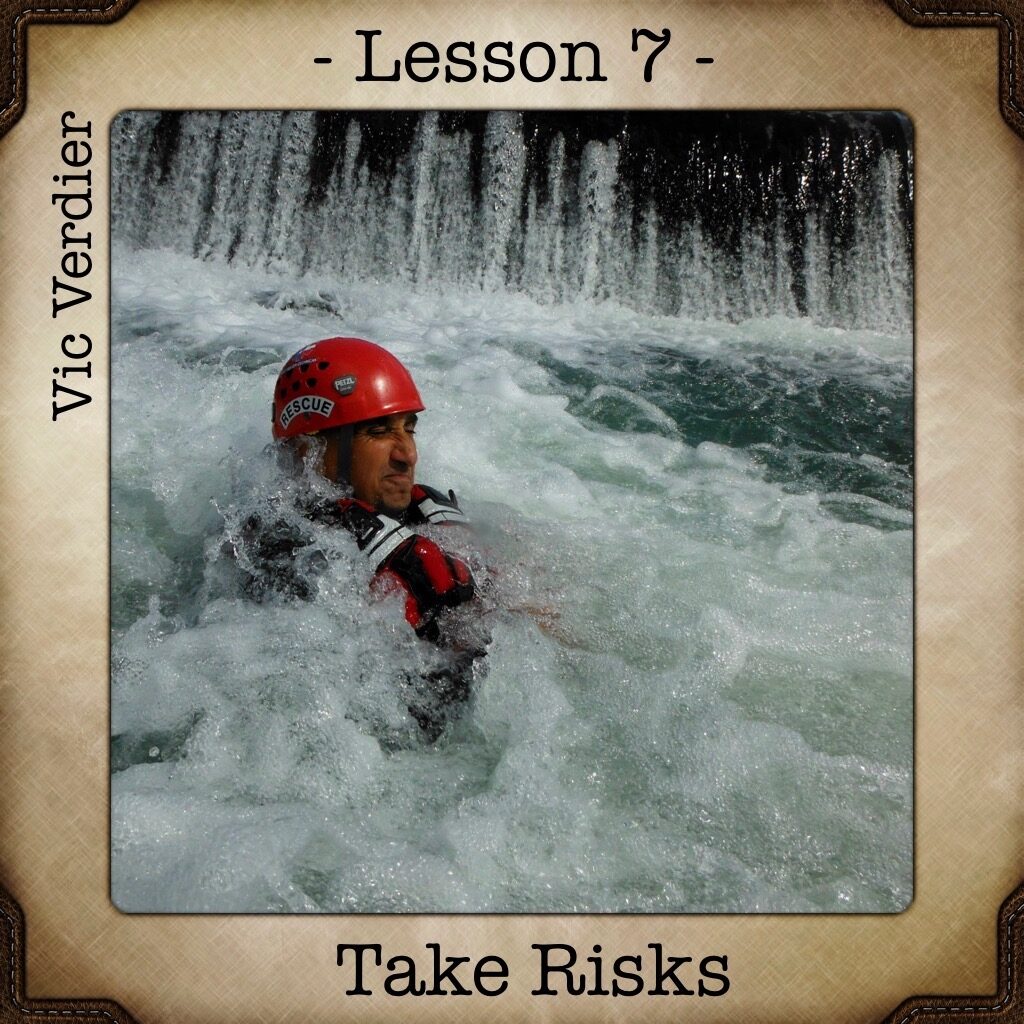
– Lesson 7: Take Risks
Risk taking has a bad reputation. Anyone who willingly pursues an activity where their body, health and well-being might be compromised, cannot be in their right mind, and is called a daredevil or an adrenaline junkie. Safety is everywhere and the fear of litigation is obvious in every liability release we have to sign, every protection we have to wear and every rule we have to follow, rules that would have made our ancestors laugh only a few decades ago. We conveniently forget that a firefighter will willingly take risks to save someone in a structural fire, or that a police officer will risk their life to help a victim of domestic violence or to stop a dangerous criminal.Life is a dangerous and lethal adventure and living a vibrant life is often about going out of our comfort zone and taking calculated risks. We have to accept the fact that a risk-free life is a fallacy, and by being obsessed with safety, we might miss some of the most enjoyable experiences. Fearing death, injuries and diseases will never guarantee our safety but will rob us from living life at its fullest. As Anthony Quinn’s character in the 1964 movie Zorba The Greek says: “A man needs a little madness, or else, he never dares cutting the rope and be free”.
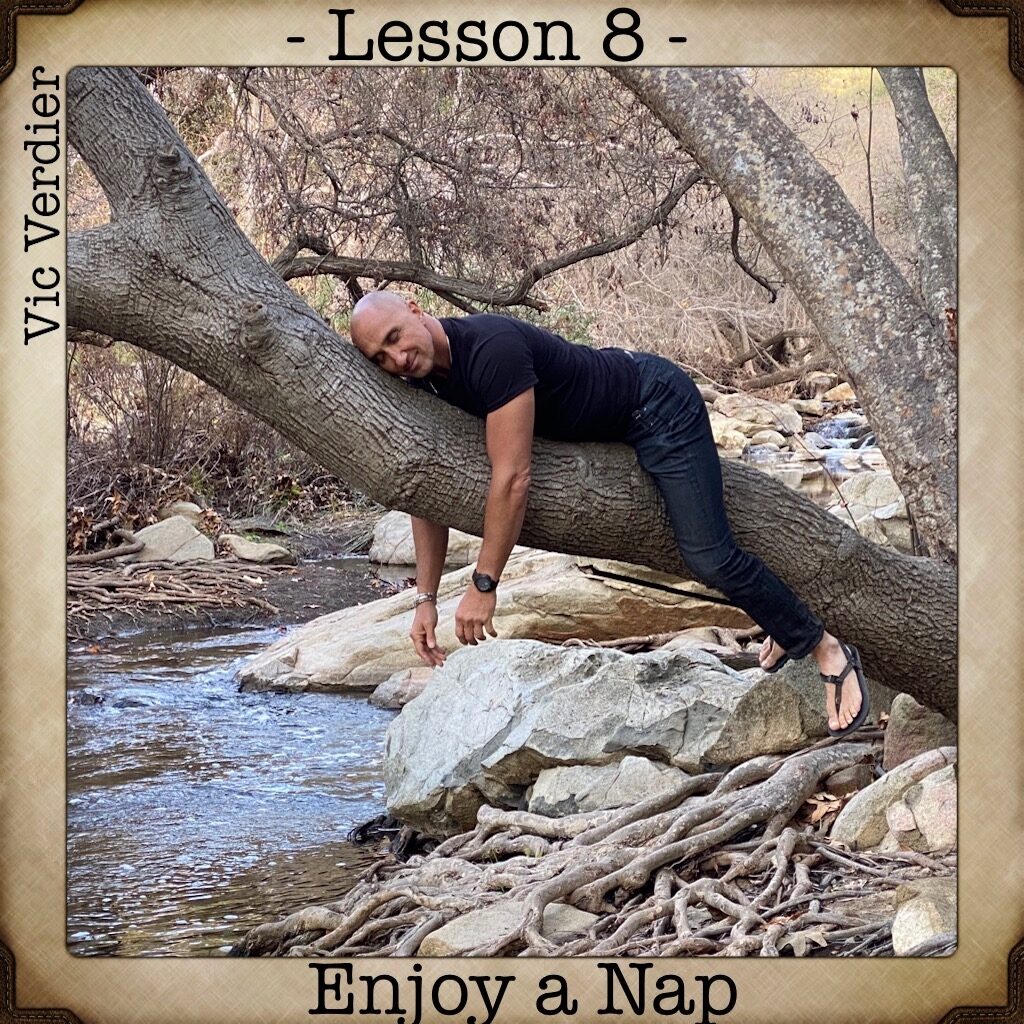
– Lesson 8: Enjoy a Nap
As the saying goes: “Train Hard, Rest Hard”. It sounds great but most people just don’t sleep enough. It might be because of the technological distractions that are so easily available, or simply because our culture has downplayed the importance of sleeping and portrayed any kind of rest as a waste of time, some precious hours of our life where we are not productive. The fact of the matter is that only 6 hours of sleep is for most of us not enough to recover from the damage done during the day. And it’s not only the physical damage created by our training or any type of physical activity, it’s also the essential self-regulation of our hormonal system and the repair and recovery of our brain activity during the day. The solution? First, a proper ratio quantity:quality of sleep, thanks to a conducive environment: go to bed early, sleep in a dark and quiet room, keep the temperature low, avoid blue light just before or during the night. It’s all common sense. And if it’s either not possible or not enough, never underestimate the power of a daily nap.
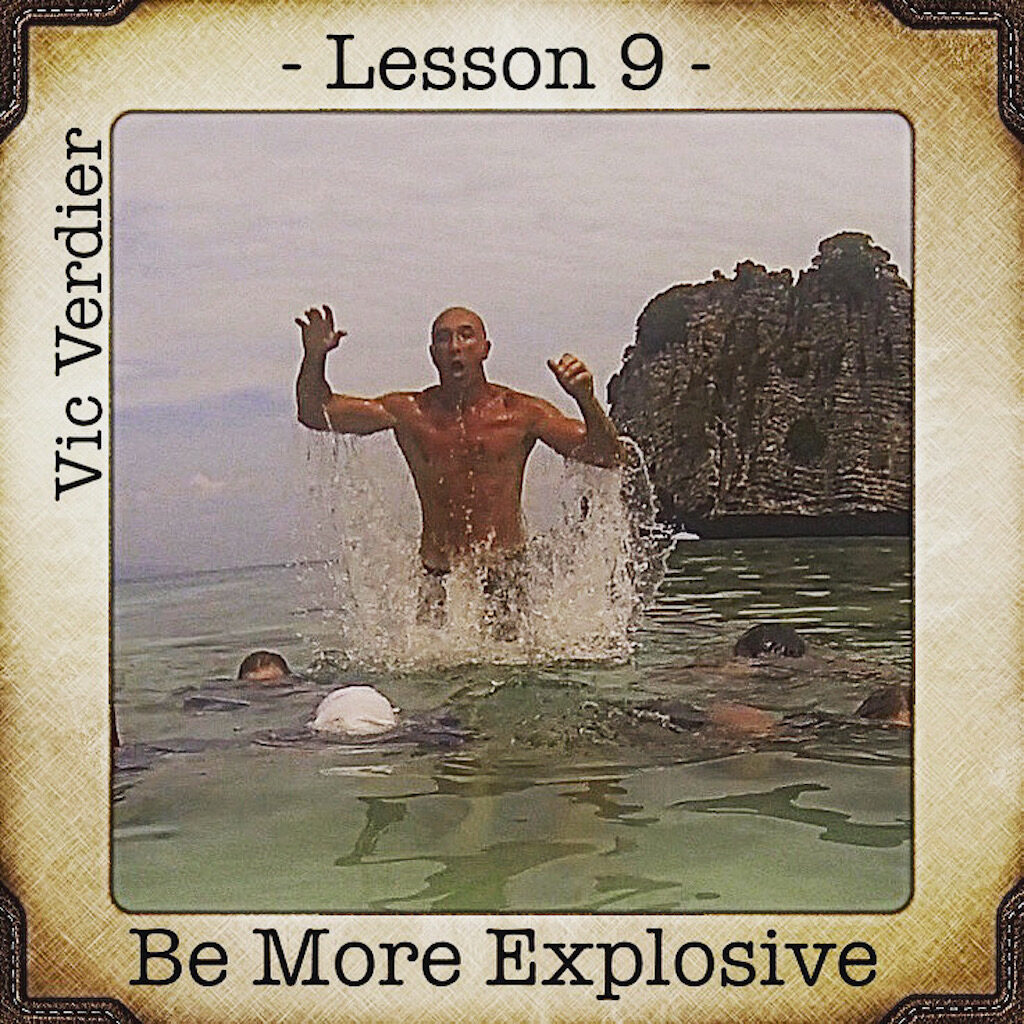
– Lesson 9: Be more explosive
Explosiveness is the combination of speed and power, and for most of us, the quality we most lack. We are not born equal, with different body types and limb lengths, but we are ALL subject to similar environments where the need for the combination of speed and power is rarely used. How often do we need to sprint? Where do we need to jump or vault? What would be the reason to lift a heavy object quickly overhead in our daily life? This is the reason we are not typically gifted with the quality of explosiveness, we just don’t use it that much — and, we are not going to get any better at it if we don’t train it. The solution? Anything that helps us to generate more power quickly: think kettlebell ballistic lifts (swings, snatches, cleans), olympic weightlifting, Parkour, tumbling, gymnastics, sprinting, jumping, etc… All in moderation. A gradual and safe progression will not only help you to become more explosive, but it will also allow you to reap the rewards of the side effects: tensile strength for your connective tissues, enhanced durability and resiliency. As I said, we all need that!
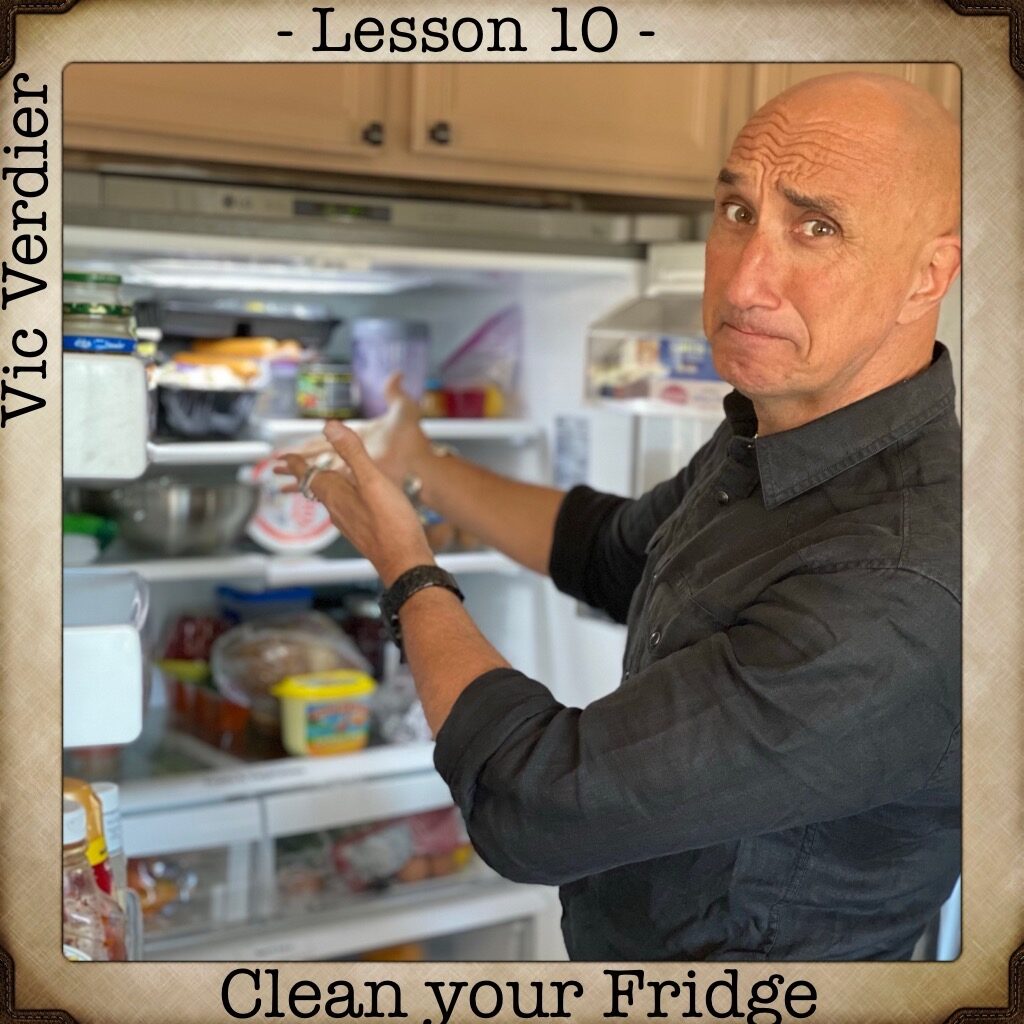
– Lesson 10: Clean Your Fridge
Twenty different sauces and dressings, most of them way past their expiration date, fill up the shelves on the door of your fridge, next to multiple plastic containers holding the leftovers of several diners from last week. With such a fridge, how could it be possible for any human being with the slightest hunger and a normal dose of strong will, to keep some discipline in their diet? The food industry has been really good at creating artificial foods that smell and taste good, but isn’t necessarily what you need. If you want to lose some weight and finally stick to a kind of healthy diet, start with cleaning up your fridge and getting rid of any food that shouldn’t find a place in your stomach. And if it wasn’t enough, a fridge is the perfect metaphor for any other project you’d like to see happening in your life. If you want to accomplish anything that requires a bit of long term discipline, start with cleaning up your mess, cleaning up your head, cleaning up your relationships or cleaning up your schedule. Or all of them!
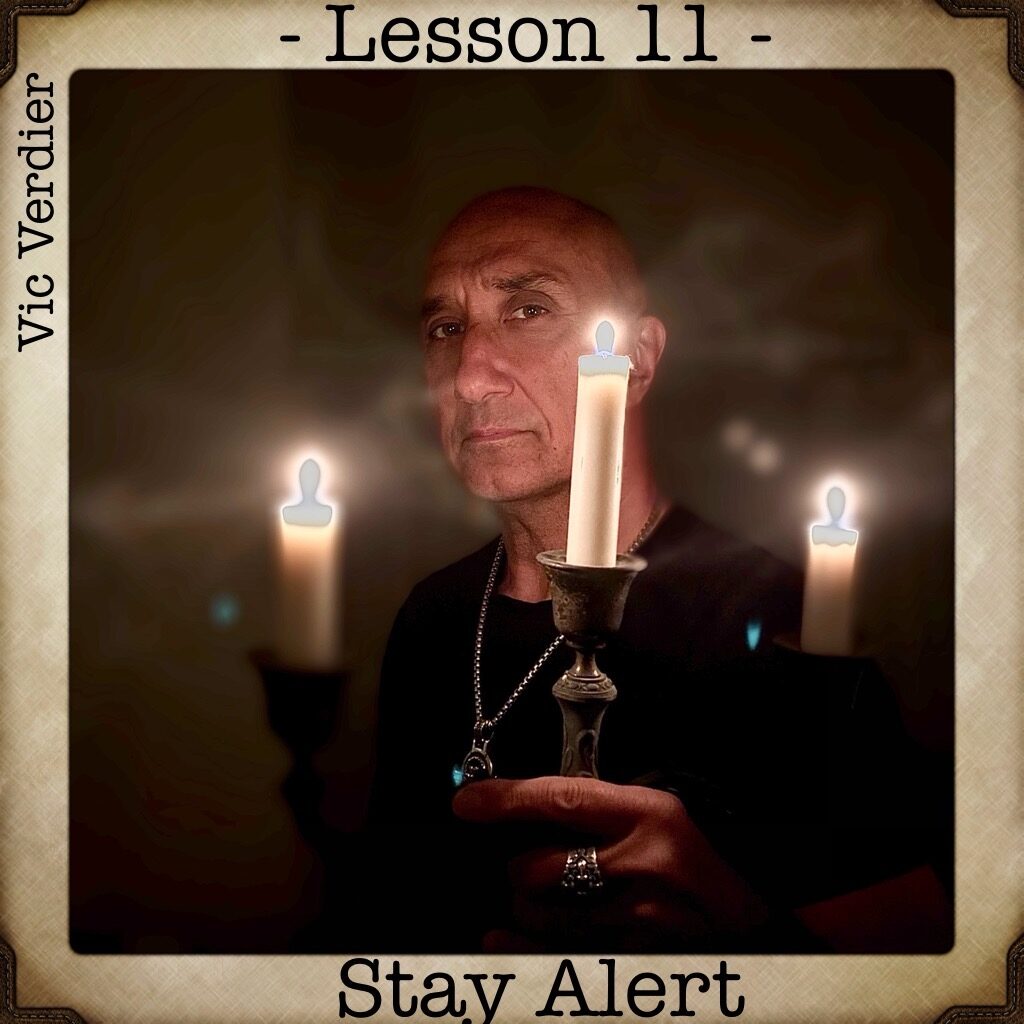
– Lesson 11: Stay Alert
Feeling safe is a very modern concept. A couple of hundred years ago, walking from one village to another was a perilous endeavor that could involve wild animals and brigands. Life was harsh and the environment harsher. Fortunately things have improved tremendously in many parts of the world and each generation that grows up in relative ‘safety’ has become more and more accustomed to the idea that being safe is a normal and expected condition for their lives. As a result, many of us have progressively turned off our senses to the dangers around us. We walk in the street without paying attention to our environment, our eyes glazed over and our brains deeply entrenched in our smartphones, our ears muffled by headphones while listening to the latest podcast or deep in conversation. We fail to recognize a potential threat in advance, our senses dulled and our brain rationalizing what our gut instinct tries to tell us, because “living in fear is paranoia”. But staying alert helped our ancestors to survive all kinds of danger for thousands of years and it would be foolish to think that reacting is better than being able to recognize a situation and anticipating a problem. So when you are out there, simply stay in a state of relaxed vigilance.
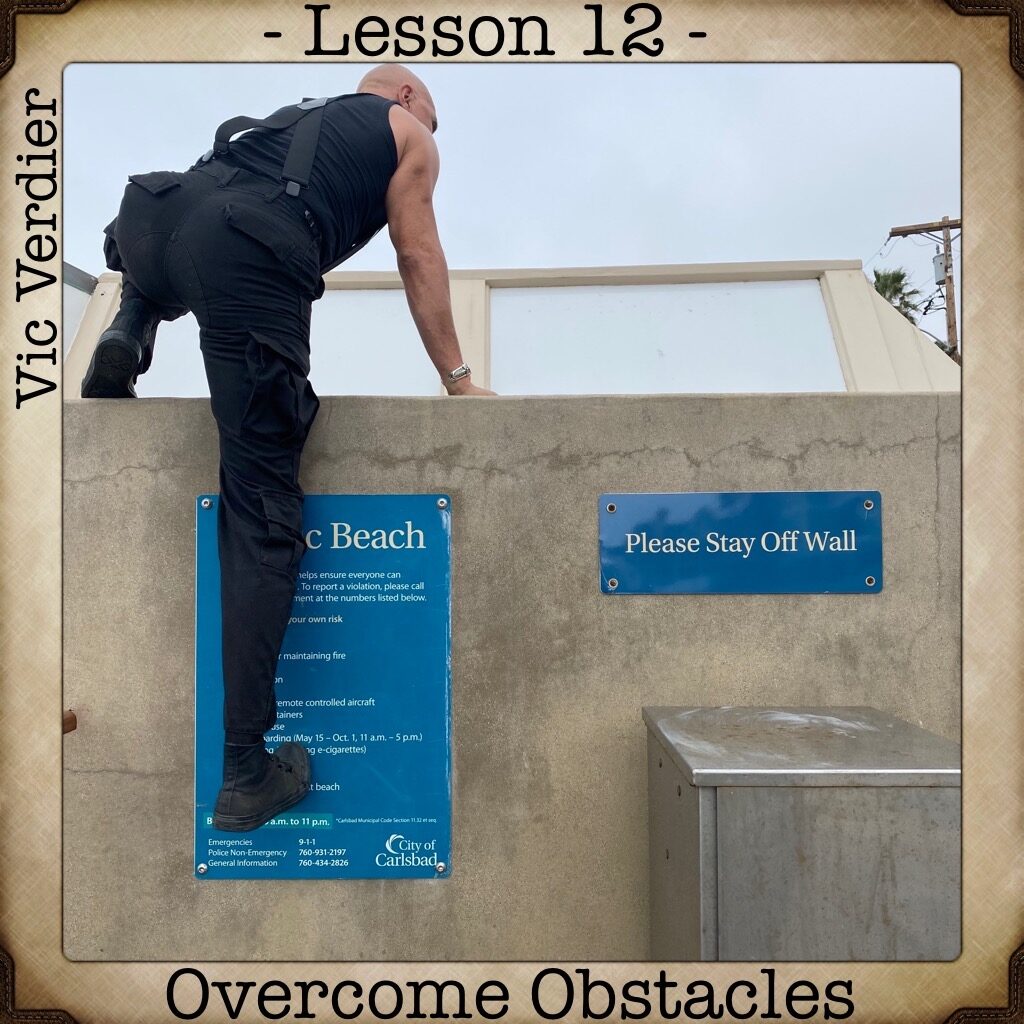
– Lesson 12: Overcome obstacles
Any self-help book that lacks imagination has a chapter on how to overcome obstacles, how to find motivation, perseverance, resilience, grit and courage. But a more literal interpretation of overcoming obstacles tells us to climb on anything we can find in our way. With 80% of the population living in or around an urban environment that represents a very small percentage of the nation’s land area, the opportunities to climb on things are rare. But obstacles are very often imposed by ourselves or the community we live in. It is usually equally frowned upon to climb on walls, road signs or bus stops, as it is considered inappropriate to vault over guard rails and other traffic boundaries. Many movies and commercials showcase Parkour sequences as a way for the main protagonists to escape the Police or chase a criminal. In other words, climbing walls has a bad rap and is mostly used with bad intent. In a city and in nature, look around you and climb on things, just for the fun of it.
